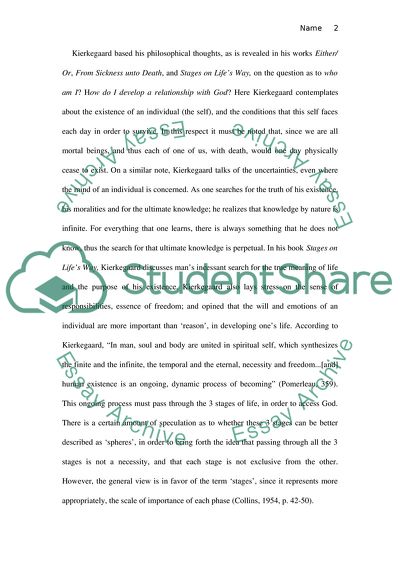Cite this document
(Kierkegaard: Thoughts on Self Development Coursework, n.d.)
Kierkegaard: Thoughts on Self Development Coursework. https://studentshare.org/philosophy/1743129-philosophy-essay-kierkegaard
Kierkegaard: Thoughts on Self Development Coursework. https://studentshare.org/philosophy/1743129-philosophy-essay-kierkegaard
(Kierkegaard: Thoughts on Self Development Coursework)
Kierkegaard: Thoughts on Self Development Coursework. https://studentshare.org/philosophy/1743129-philosophy-essay-kierkegaard.
Kierkegaard: Thoughts on Self Development Coursework. https://studentshare.org/philosophy/1743129-philosophy-essay-kierkegaard.
“Kierkegaard: Thoughts on Self Development Coursework”. https://studentshare.org/philosophy/1743129-philosophy-essay-kierkegaard.


